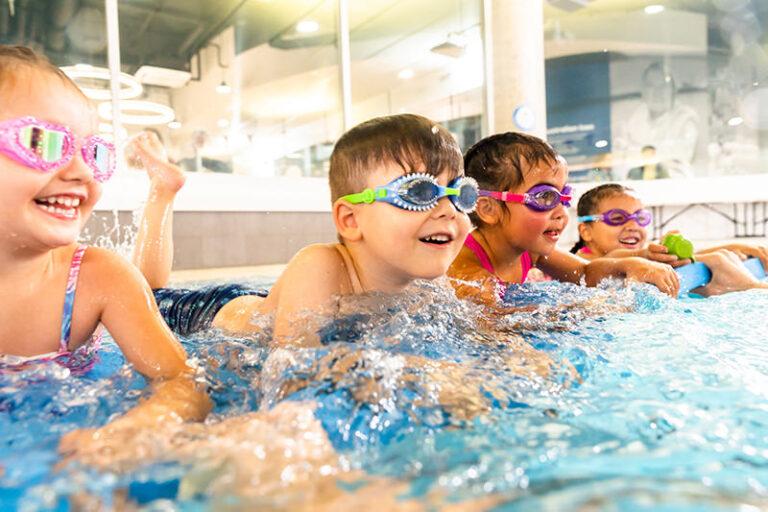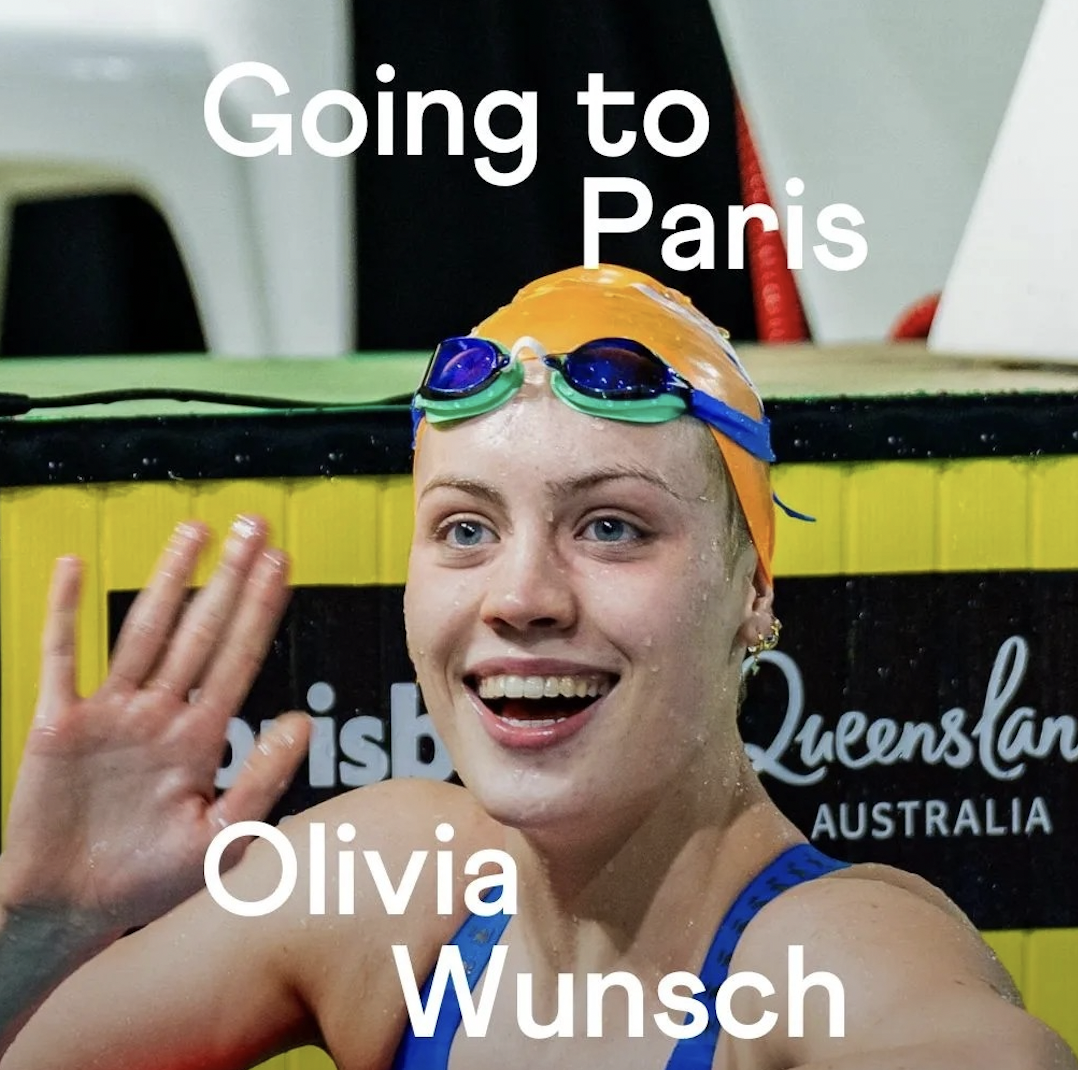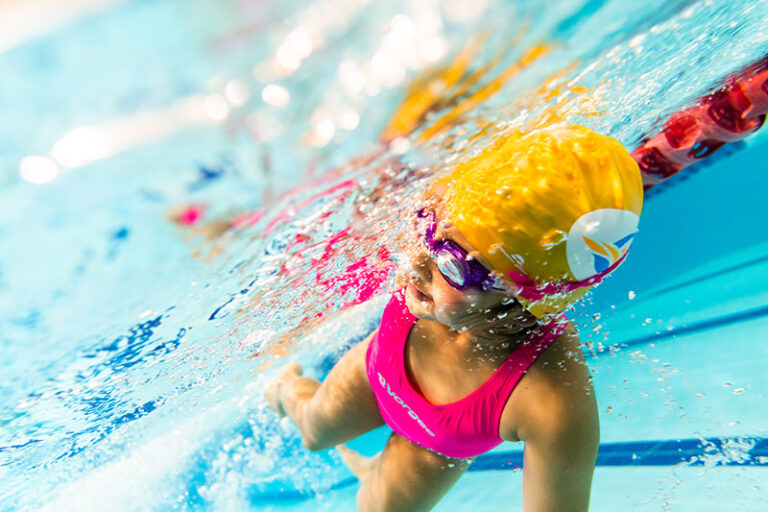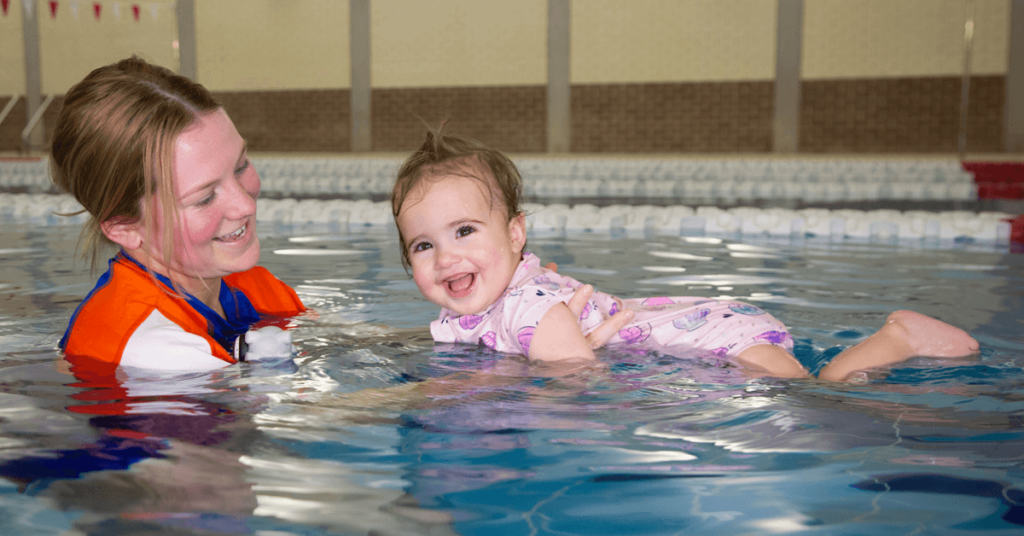
Forbes and Ursula Carlile pioneered baby teaching in Australia, opening Sydney’s first indoor learn to swim centre. The company they founded, Carlile Swimming, is now regarded as one of the world’s leading swim schools.
When to start swimming lessons is a common question for parents. At Carlile, we run Waterbabies classes from three months of age. “By that stage their immune systems are developing, they are bonded with you and they love the buoyancy of the water,” said Carlile director and former Australian champion Richard Cahalan.
“It’s a perfect time for parents to help them explore and have fun, but beyond that, babies and young children learn important water safety skills. Everyone should learn to swim well and there is no doubt that starting young is ideal,” Cahalan added.
Being in water is also a familiar and comforting memory for babies, having spent nine months in the womb surrounded and supported by amniotic fluid. This could be one reason why so many babies love swimming with mum or dad. Getting them started early when they have been used to water around their ears and eyes is often more pleasant than waiting until they are toddlers and those memories have faded, indeed some toddlers can develop fear of the water.
It is important that babies are never pushed into situations before they are ready but allowed to explore the water in a safe environment allowing them to build confidence.
Waterbabies classes are conducted with a parent in the water with the child. Its tremendous bonding and parents often have as much fun as the children. But while there are songs, games and plenty of fun it’s all with a purpose.
Children begin to learn the important first safety steps and to build the skills they need to learn to swim. But can they ever be totally safe around water?
“The answer to this question is never. No child is totally SAFE around water,” says Cahalan.
“That’s why we use the word SAFER. Being SAFER is about layers of protection and recognising that we can never be totally safe. We should never be complacent around water.”
“When a child falls in often you don’t hear it happen, it can be so quick, so traumatic and with devastating results.”
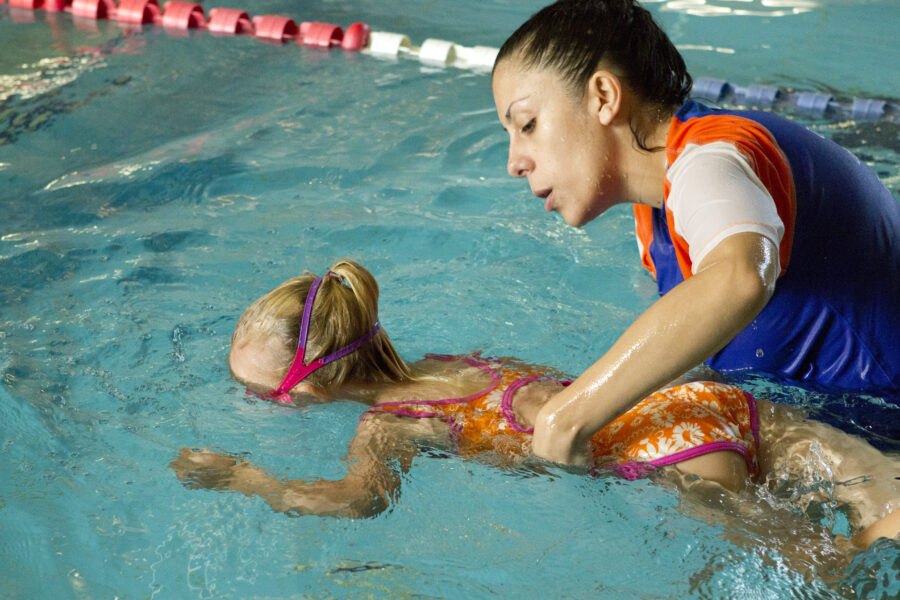
Carlile has worked with the Australian Swim Schools Association and supports its SAFER swimming campaign. The ASSA campaign promotes some simple yet vital steps you can take to help your child be SAFER.
Swimming Skills – learning to swim well is a vital step. At Carlile we consider that completing our program and graduating as a Shark. At that level your child will be able to swim 400 metres freestyle with sound technique.
Adult Supervision – constant supervision by a competent adult is the most critical factor in preventing drowning. This means being within arms-reach of any non-swimmer, maintaining constant visual contact and not being distracted by phones or conversations. Royal Life Saving Society Australia report that “the lack of direct adult supervision is the main factor in 70% of toddler drowning deaths”.
Fences & Gates – make sure your pool has compliant fencing and gates. These should be regularly checked and anything that could be used by a child to climb over the fence or gate removed.
Emergency Plan – having an emergency action plan can save a life. If a child is missing every second counts, check the pool and other water hazards first. Do you know CPR? If not, then enrol in a course ASAP.
Reduce the Risk. The steps above can help reduce the risk. Fortunately, drowning deaths amongst children in Australia have declined. Last year, there was a 52% decrease in drownings amongst children aged four and under. We would like to see that trend continue towards zero.
You can find out more information about what should be in your emergency plan at the Australian Swim Schools Association website
And swimming does more than just help your child be Safer around water.
Expecting a one-year-old to swim freestyle is about as realistic as asking her to drive your SUV down the road to buy the groceries. So why do countless experts insist that the best time to start swimming lessons is, as soon as possible?
Swimming coaching icon, Laurie Lawrence has been teaching babies to swim for decades. He is a passionate advocate for getting babies in the water, but there was a time when Lawrence was a cynic.
“I didn’t believe in baby teaching, then I had my own daughter and I started to investigate. But of course, Forbes (Carlile) had already started,” Lawrence told a Foxtel documentary on Australian Swimming.
Lawrence visited the late swim coaching master Forbes Carlile at his home in Sydney “one morning about five am there’s Laurie on the doorstep, he said I haven’t come to see your swimmers, I’ve come to see your babies,” Carlile recalled years later.
“Once I saw it, I couldn’t believe it. It was amazing,” Lawrence added.
Australia’s Griffith University conducted a ground-breaking four-year study on the benefits of swimming young. The study found children who attended regular swimming lessons improved physical, emotional, social and cognitive skills. In fact, compared to the non-swimming population, the 3 to 5 years olds in the study were:
- 11 months ahead in verbal skills
- 6 months ahead in mathematic skills
- 2 months ahead in literacy skills
- 17 months ahead in story recall
- 20 months ahead in understanding directions
Mr Cahalan, stresses that finding the right pool and teaching program is a must. “The pool itself has to be warm, both in and out of the water. You also want a facility with quality filtration and water treatment, that ensures the highest level of hygiene,” he says.
Finding the right facility is one thing, finding the right approach to teaching children to swim well is another. You can see more about the industry-leading Carlile approach here.


